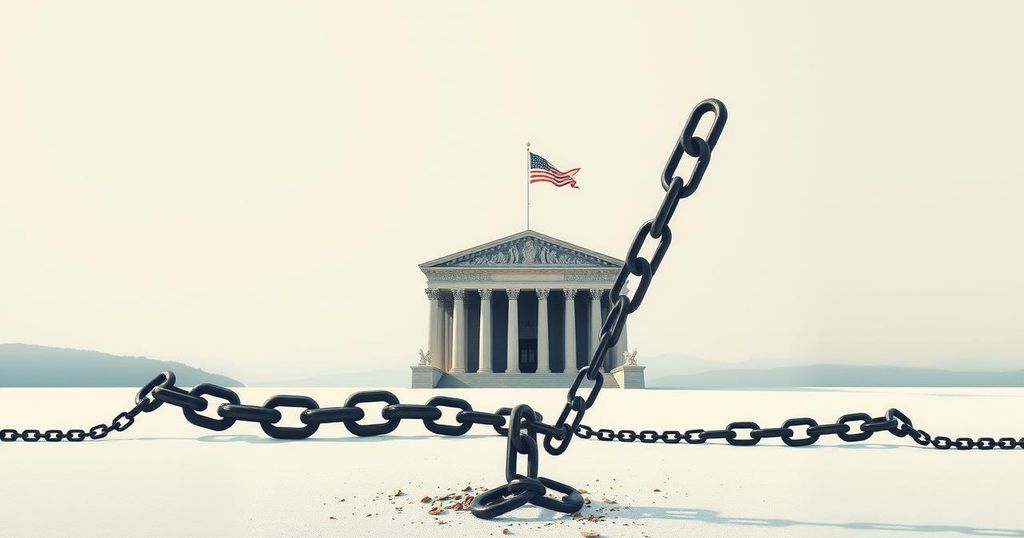President Umaro Embaló’s dissolution of parliament in December 2023 has caused a political crisis in Guinea-Bissau, prompting opposition threats of protests and strikes. The Supreme Court’s term extension has fueled tensions, while ECOWAS’s ineffective mediation raises critical questions about its authority. Embaló’s decision to seek a second term despite earlier intentions not to suggests a preference for foreign over regional engagement. The situation emphasizes the need for clear definitions of internal affairs and effective conflict resolution strategies.
In December 2019, President Umaro Mokhtar Sissoco Embaló won the presidential elections, securing a five-year term. However, by December 2023, he controversially dissolved parliament without announcing a date for new elections, prompting opposition parties to accuse him of undermining democracy. In response, opposition leaders have threatened mass protests and civil disobedience unless a clear election date is established.
The dispute over Embaló’s term end date has intensified tensions in Guinea-Bissau. The opposition argues that his term should end on February 27, 2025, as per the constitution, while the Supreme Court intervened and extended it to September 4, 2025. This decision has sparked fierce opposition disapproval and added to the political uncertainty.
In September 2024, President Embaló announced he would not seek a second term, but later suggested he might reconsider after discussions with family. This indecision has contributed to a volatile political landscape, with the potential for serious consequences looming over the country.
On March 3, 2025, a high-level ECOWAS delegation traveled to Guinea-Bissau to mediate the escalating political crisis. However, their mission ended abruptly when President Embaló expelled the delegates, emphasizing his refusal to accept ECOWAS involvement in national matters.
Following this diplomatic setback, President Embaló confirmed his intention to pursue a second term in upcoming elections, signaling a preference for French involvement over regional cooperation. This choice reveals a potential alignment with France, contrasting with Guinea-Bissau’s historical ties to Portugal, its former colonizer.
ECOWAS’s silence after this event raises critical questions regarding its authority and ability to effectively address violations of democratic norms. Unlike its decisive action during the 2017 political crisis in The Gambia and the military unrest in Niger in 2023, the regional body appears paralyzed in its response to the current situation.
The actions or inactions taken by ECOWAS in this context will set an important precedent for future interventions across West Africa. It is vital to clarify the definitions of internal affairs in terms of ECOWAS intervention, ensuring clear guidelines for member states moving forward.
President Embaló’s leadership style has shown a troubling disregard for the crisis at hand, risking further instability in Guinea-Bissau. His choices, whether to seek outside support or to rely on personal connections with foreign leaders, will have significant implications for the nation’s future.
In amid these tensions, call for expert mediation has been made, referencing the potential contributions of Dr. Mohamed Ibn Chambas, an esteemed figure in conflict resolution. As the situation evolves, the need for skilled negotiation is paramount to avert a deepening crisis in Guinea-Bissau.
President Umaro Mokhtar Sissoco Embaló’s recent actions have raised significant concerns regarding his commitment to democratic principles in Guinea-Bissau. Following the controversial dissolution of parliament and the postponement of elections, the political climate has grown increasingly unstable. ECOWAS’s failure to take decisive action could witness erosion of its authority in regional matters, making the need for effective mediation and resolution more urgent than ever.
Original Source: thepoint.gm






